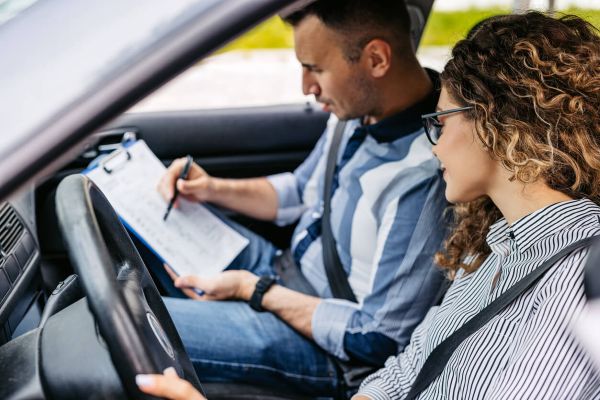

Top Mistakes Students Make in Driving Lessons
Learning to drive is a rite of passage—an exciting yet nerve-wracking experience. The open road symbolizes freedom, independence, and adventure. But before you can enjoy that sweet, sweet feeling of rolling down the highway with your favorite tunes, you've got to conquer the classroom of asphalt: the driving lesson.
Every learner makes mistakes—some minor, some major—but they're all part of the journey. The key is recognizing those mistakes, correcting them early, and building good habits for a lifetime of safe driving. Whether you're just starting out or are midway through your lessons, here are the top mistakes students make in driving lessons—and how to avoid them.
Explore Horizon Driving School here.
1. Not Listening to the Instructor
Driving instructors are not just sitting there for moral support. They are trained professionals with years of experience who know what to look for—and what to fix. One of the most common mistakes learners make is tuning out their instructors. Maybe it's nerves, or maybe overconfidence kicks in. Either way, failing to listen can lead to repeated errors and frustration on both sides.
Pro tip: Treat your instructor like your personal driving GPS—ignore them, and you're bound to end up in trouble.
2. Overthinking Everything
Overthinking is the silent killer of confidence behind the wheel. Many students spend too much time analyzing their every move instead of simply driving. They hesitate at green lights, second-guess their mirror checks, or over-correct when steering. Ironically, the fear of making a mistake often causes mistakes.
Driving, like riding a bike, becomes easier with muscle memory and practice. Trust yourself a little. If you've studied the theory and listened during lessons, your instincts are probably better than you think.
3. Panicking Under Pressure
Whether it's a honking car behind you, a confusing roundabout, or an unexpected lane merge, panic is not your friend. Unfortunately, many students freeze or make rash decisions when the unexpected happens.
Panic often leads to dangerous mistakes like slamming on the brakes, swerving, or forgetting to signal. A calm driver is a safe driver. Learning to stay cool under pressure is just as important as learning how to parallel park.
Try this: Take a deep breath, process the situation, and react instead of panicking. Your instructor is there to help guide you out of tricky moments.
4. Forgetting Basic Checks
Mirror, signal, maneuver—the holy trinity of driving. You'd be surprised how many learners forget to do basic checks before turning, changing lanes, or pulling out of a parking spot. These habits need to be drilled into your routine.
Failing to check mirrors or blind spots not only risks failing a test—it's dangerous. Driving isn't just about controlling your car; it's about awareness of everything happening around you.
Make it a ritual: every move should start with your eyes—checking mirrors, signals, and surroundings.
5. Being Overconfident Too Soon
One successful parallel park doesn't make you Lewis Hamilton. Many students get a taste of victory early on and then underestimate the road. Overconfidence leads to risk-taking—speeding, cutting corners, or neglecting rules.
Confidence is great; cockiness is not. Remember, even experienced drivers make mistakes. Respect the rules, the road, and the learning process.
6. Driving Too Slowly
Yes, too slow can be a problem. New drivers often believe that slower is always safer—but that's not necessarily true. Driving too slowly can actually cause accidents, especially on busy roads where traffic is flowing at a consistent speed.
It's important to drive at a speed that's appropriate for the road and conditions. Being overly cautious can frustrate other drivers and create risky overtaking situations.
Golden rule: Drive with the flow, not against it.
7. Not Practicing Outside Lessons
You wouldn't expect to learn guitar by strumming once a week, so why think one lesson a week is enough to master driving? Many students rely solely on their instructor's time without supplementing it with supervised driving outside lessons (if legally allowed).
Consistent practice helps cement skills and boost confidence. The more time you spend behind the wheel, the better your control, awareness, and reaction times become.
8. Misjudging Distance and Speed
Another classic blunder: students often misjudge how far away something is, or how fast another vehicle is traveling. This leads to poor decisions at junctions, roundabouts, and when overtaking.
Experience teaches judgment, but awareness can speed up the learning curve. Observing traffic while not// driving—like being a passenger—can help you develop better distance and speed judgment.
9. Neglecting Road Signs and Markings
Focusing too much on the wheel, pedals, and what your hands are doing can cause you to forget that roads talk. They use signs, lines, and signals to guide you—and ignoring them is a major rookie mistake.
Running a stop sign because you didn't see it? That's a big red flag. Literally.
Train yourself to scan the road ahead constantly. Read the signs like a story. They're there to help, not confuse.
10. Not Asking Questions
Some students are so worried about sounding silly that they never ask their instructor questions. If something doesn't make sense, say so. That's what lessons are for.
Your instructor has probably heard every question in the book. Clarifying early confusion can prevent long-term bad habits or misunderstandings about road rules.
Conclusion
Driving is more than a skill—it's a responsibility. Mistakes during lessons are normal, but learning from them is what separates good drivers from great ones. Every hiccup, missed mirror check, or panicked roundabout is a lesson in disguise.
The road to becoming a competent driver is paved with patience, practice, and humility. Don't rush it. Don't fear mistakes. And most importantly—keep learning long after you get your license.
Remember, every great driver was once a nervous student, white-knuckling the steering wheel and praying they wouldn't stall. You've got this. Just keep your eyes on the road, your mind in the moment, and your instructor's advice close to heart.
Safe travels!

